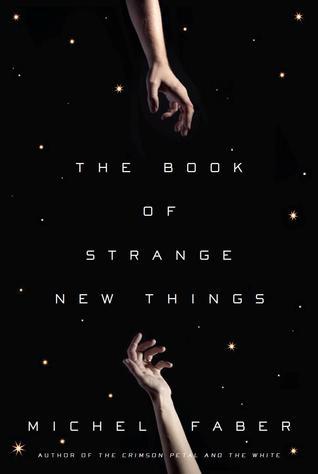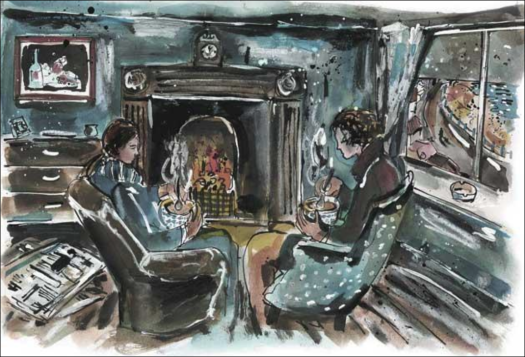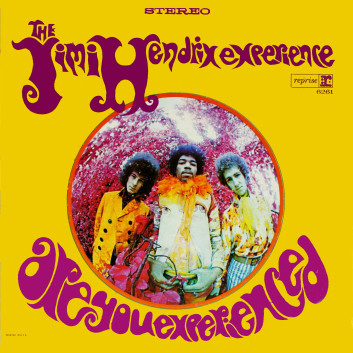A friend recommended The Book Of Strange New Things to me a while back, so when I saw a beautiful hardcover edition in the severe discount bin at my local grocery store, I swept it up without hesitation. (I’m still trying to figure out why it ended up in a discount bin at my grocery store. Weird.)
The Book Of Strange New Things is a breath of fresh air, that’s for sure. But, if I’m telling the truth, it didn’t end quite satisfactorily in my mind. More on that soon …
The premise is that Peter, a man of 33, has been selected by a clandestine corporate entity to serve as a missionary to an indigenous species on a planet said entity is colonizing. Peter is very happily married, and while he moved through the vetting process with ease, his wife did not, which results in her having to stay behind.
Both are incredibly devout to God. They effectively run their own church while Peter’s wife, Bea, also works as a nurse. Both experienced a difficult past, and it’s amazing Peter even lived long enough to eventually find God. If I may be so bold, Bea and Peter are the sort of Christians who lead by example. They do not force God upon people. They treat people with respect, they administer to people, they expect nothing in return, but if an opportunity comes along to share the Message, they will. They do not judge, for Peter has plunged lower than most anyone during his previous life. They do not beat their Bibles. They love. They care. They help. They share.
Due to their faith and bond, they agree to serve God by sending Peter off to this distant world as Bea stays behind. Once Peter arrives, his work proves to be far simpler than he imagined. In fact, the denizens he’s serving are all too willing to have him; they’ve even been looking forward to his arrival!
But soon after Peter settles in on this new world, horrible things begin happening back on Earth. He and Bea’s faith and love are put to the test in ways they never imagined. Even their belief in God is strained.
I won’t spoil it any further, but this gives you a good sense of the tone of the book. It introduces some compelling themes. The idea of putting God first, before oneself and even one’s spouse, is a conflict of great interest to many. There are also several mysteries unfolding, particularly in regards to the aliens themselves. Just why are they so enthusiastic to learn about God? Why did they specifically request a missionary from the corporation? What is their motivation? Furthermore, Peter suffers dismay as he is unfathomable miles from his wife as her world seems to be falling apart. What is going on back on Earth? Are things as bad as she says? Is it even her writing these messages to him?
I appreciate that Peter is quite believable as a man who lived in the gutters before finding God. Faber had to walk a tightrope in making a missionary who did not come off as too preachy, too stereotypical, too “holier than thou.” He also came close to making Peter too selfless, too forgiving, and too naive. Instead, he managed to strike that delicate balance with Peter, and, as a result, created an engaging character for whom we care.
The book moves quite slowly, but not unpleasantly. Faber spends a great deal of time establishing Peter, Bea, the creatures, the new planet, and even Peter’s coworkers. He explains just enough to make this colony believable, yet he smartly avoids trying to explain every nuance of the science and technology involved. Peter is a bit of a amateur when it comes to technology, so it helps to see the world through his eyes. Things happen, but he doesn’t pretend to understand the science behind it, nor does he particularly care. He shares his curiosity with the reader, but does not try to focus too much about anything beyond the natives and his mission. Oh, and Bea. For the most part.
My only complaint is the ending. For a book that burns so slowly, I expected a bit more from the conclusion. On the one hand, we are given some interesting revelations concerning the planet’s inhabitants, but in regards to life back on Earth and Bea, I found myself rather unsatisfied. I don’t need everything wrapped up in a tight little bow, but I thought Faber could have rewarded the reader a bit more in that regard.
There tends to be a real trend of late with new takes on space travel and “aliens.” With mature, thoughtful approaches like Arrival and The Book Of Strange New Things, I hope the genre continues to expand and reinvent itself.
I absolutely recommend The Book Of Strange New Things for its characters, themes, creativity, originality, conflict, style, and plot. My only reservations in recommending it to you are the pacing and the conclusion.






